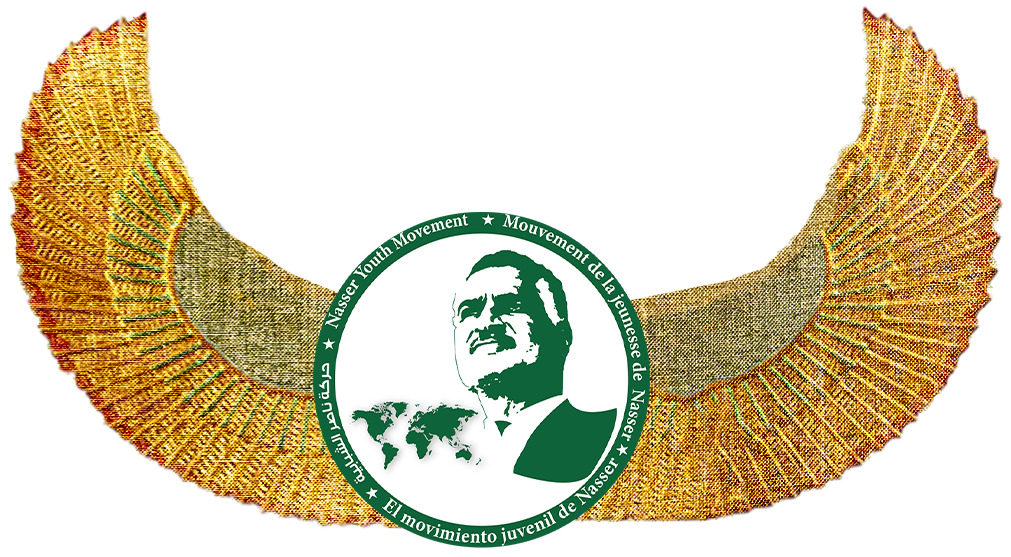Healthcare in Africa…A Conversational Session within the activities of the fifth day of Nasser Youth Scholarship

Translated by: Hasan Swadu
A session titled “Healthcare in Africa” was organized within the activities of the fifth day of “Nasser Scholarship for African Leadership” with the presence of Dr. Helmi El-Hadidi, the former Minister of Health and the President of the Asian and African Peoples' Solidarity Organization "Afro-Asian". The session was moderated by Hassan Ghazaly, the African Youth Office General Coordinator, and the African Youth Union Vice-President.
Dr. Helmi El-Hadidi, the President of the Asian and African Peoples' Solidarity Organization "Afro-Asian", praised the purpose and goals of Nasser Scholarship for African Leadership, emphasizing that the late leader Gamal Abdel Nasser was the first Egyptian to lay the foundations for the African Nations’ future and the first to establish Islamic, Arabic and African forums.

El-Hadidi emphasized the role of the late leader Gamal Abdel Nasser in establishing liberation and independence movements for the African region in light of global conditions that reflect America’s fight against liberation movements in the West, noting that the late President Abdel Nasser raised the banner of liberation and stability in the African countries and put an end to the colonialism to begin building African minds and achieving progress and prosperity for the African countries.
El-Hadidi also highlighted that President Gamal Abdel Nasser was distinguished for his popular sense out of his strong belief that the real true value of a nation lies within the people not only within the governments alone. This forced him to establish a people’s organization that unites the Third World Nations, which is called The Asian and African Peoples' Solidarity Organization that has branches in up to 103 countries and then it went down to 73 countries until its role diminished after the revolutions of the Arabic Spring, which caused changes in the region. Afterward, it was re-established in North Africa in Morocco, Tunisia, Libya, Sudan, Chad, Congo, and Brazil and for the first time, a branch was established in Pakistan.

Al-Hadidi emphasized the importance of establishing the principle of solidarity and peace, as it is a fundamental base for the people's development, construction, and prosperity. He pointed out that healthcare is part of social development as sick people cannot produce anything properly. Therefore, Abdel Nasser established aggregated units at a Republic level, which combined providing healthcare services, education, and local administration together to serve the community, which reflects the popular dimension of Abdel Nasser's policy and the youth dimension and giving women the right to vote, which result in achieving development and prosperity for the African continent.
The head of the Asian and African Peoples' Solidarity Organization "Afro-Asian" explained that providing material capabilities and proper education contributes to the development of healthcare services in Egypt and African countries, pointing out that ignorance and poverty are inseparable from diseases and the spread of epidemics and diseases is correlative to the social and economic status and the level of nutrition of countries.
For his part, Hassan Ghazaly, Vice-President of the African Youth Union, referred to the political leadership of the African continent in healthcare, especially the eradication of Hepatitis C, highlighting that President Abdel Fattah El-Sisi launched the 100 Million Healthy Lives Initiative to cure the people of Africa.

Ghazaly also stressed the role of the African Foundation headed by Dr. Gamal Shiha, which is the largest African network working on eliminating hepatitis viruses, especially virus C in African countries, explaining the importance of the Egyptian Agency of Partnership for Development (EAPD) by supporting development in many countries, especially the neighboring African countries under the presidency of Egypt to the African Union in 2019, as an extension of the Africa Fund, which was established by the late President Gamal Abdel Nasser.

